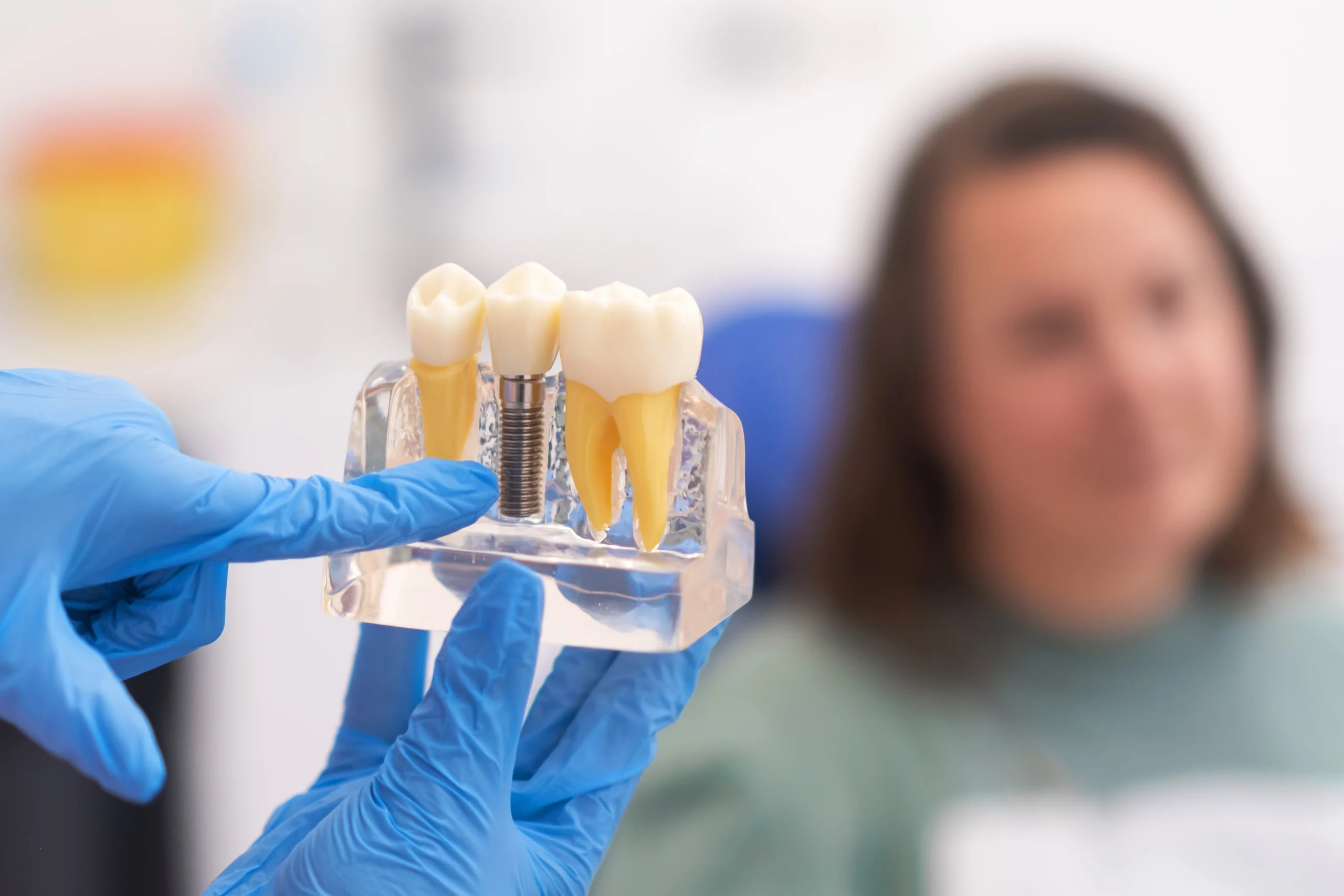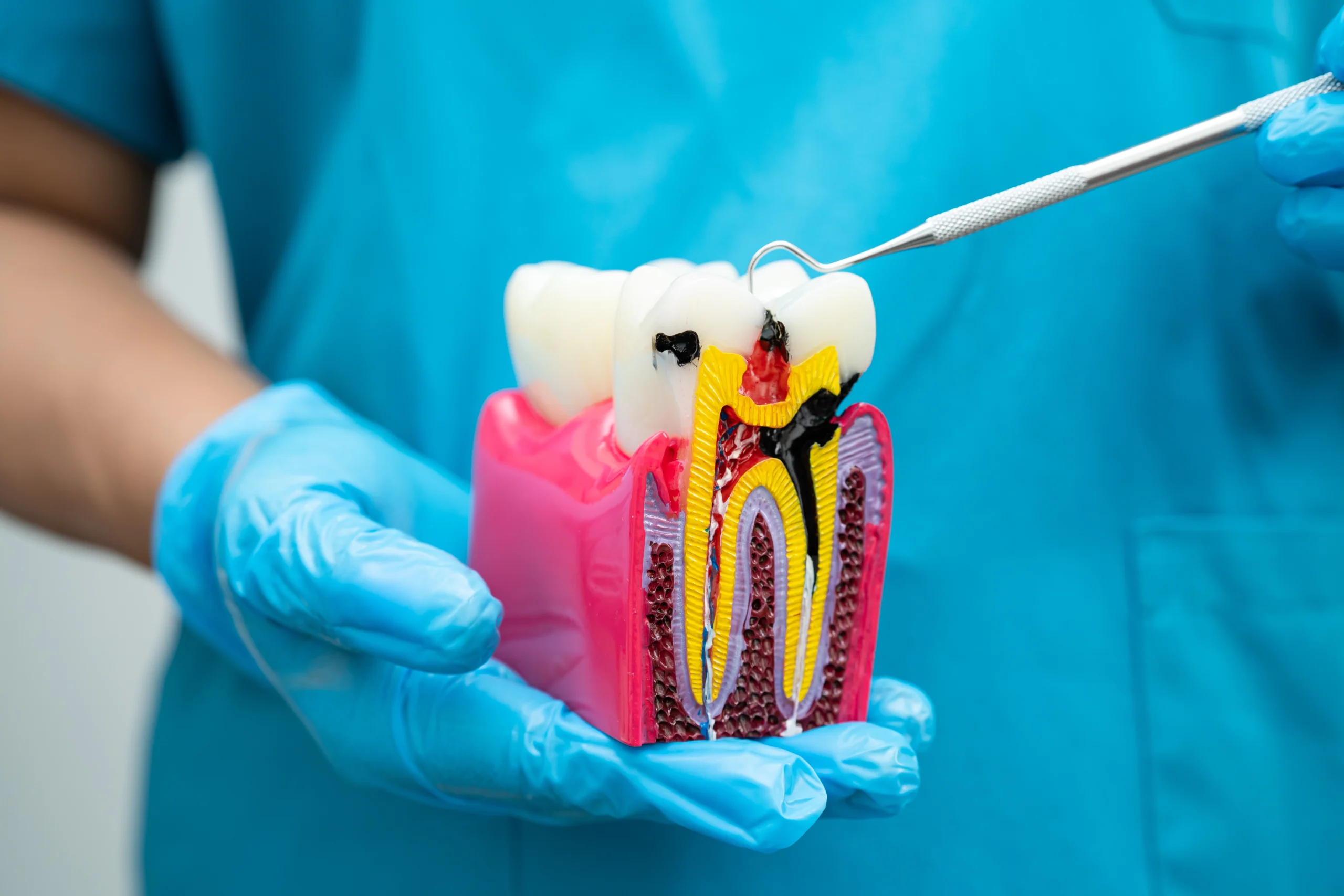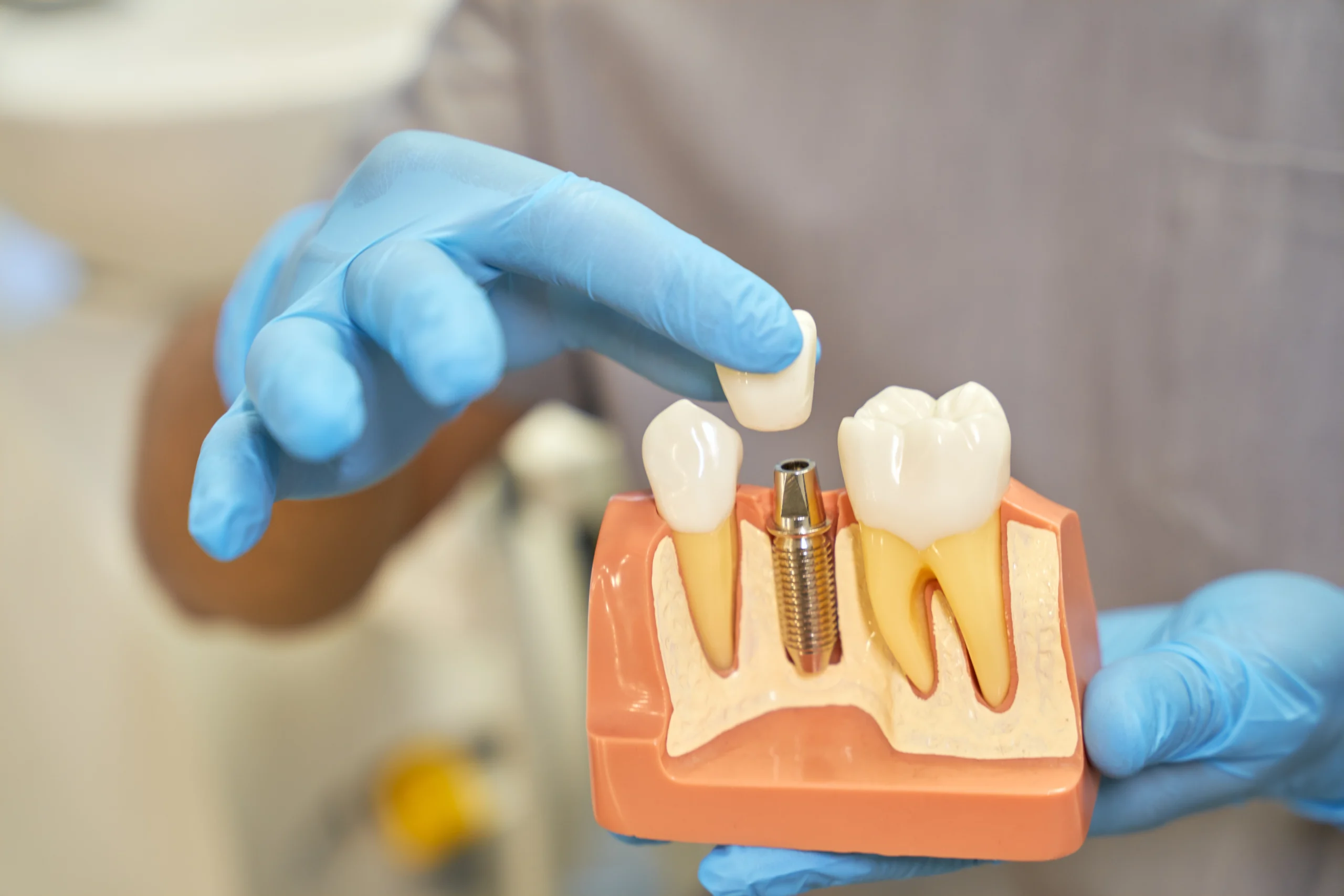Dental Blog - Hughson, CA
Tips, Facts, And The
Latest In Dentistry

Dental Implants vs. Bridges: Which Is Right for You?

Tooth loss can profoundly impact overall wellness, extending far beyond its cosmetic effects. By mid-adulthood, the average American has already lost some teeth. National surveys also show that one in eight adults have lost all their teeth by the age of 65, and the number steeply rises after 75.
There can be multiple causes of tooth loss, including injuries, untreated tooth decay, gum disease, or simply the natural aging process, which can result in the loss of numerous teeth. While it’s commonly viewed as a purely dental problem, the effects can extend deeper and impact several aspects of your overall wellness.
Missing teeth can not only impact self-confidence, but they can also change the way you chew, straining other healthy teeth and increasing the risk of further decay and/or loss. Tooth loss can also affect speech, altering pronunciation. Overall, it can make a person’s life uncomfortable, chipping away at their self-esteem.
The hidden health effects:
Tooth loss can cause bone loss in the jaw, a process that begins soon after a tooth is gone. This causes neighbouring teeth to shift and misalign, creating new dental problems. Once chewing is compromised, your diet suffers, leading to both digestive issues and nutritional deficiencies.
Why do you need prompt replacement:
Replacing lost teeth early helps prevent further decline in oral health. It protects bone structure and helps restore proper dental function.
Modern dentistry offers two leading solutions: dental implants and bridges. Your choice among them should be based on some factors, which are explained in this article.
Dental Implants in Hughson: What You Need to Know
Dental implants are artificial tooth roots, typically made of titanium, that are surgically placed into the jawbone to support a crown. They replace the entire tooth, making it more stable and secure. They look, feel, and function just like natural teeth. They are one of the most popular replacement options.
Dental bridges are a fixed restoration option that replaces one or more missing teeth by joining an artificial tooth to adjacent teeth or dental implants. They bridge the gap created by lost teeth and can restore chewing function, improve appearance, and maintain the shape of your face.
At Hughson Family Dentistry, experienced professionals offer advanced and customized solutions tailored to meet patient needs, ranging from single-tooth implants to full-arch restorations.
Dental Implants vs. Bridges
Despite their unique features, both options have their pros and cons. A thorough understanding of these can help the patient make an informed decision with the consultation of the practitioner:
Dental Implants
Advantages:
- Durability: With proper care, implants can last a lifetime, lasting up to 20 years or more, which far exceeds the lifespan of most bridges.
- Natural Look and Feel: They closely mimic the appearance, texture, and functionality of natural teeth.
- Bone Preservation: Implants have a titanium root that is screwed onto the jawbone. These roots stimulate the bone and fuse with it through a process called osteointegration, making them far more stable and helping with bone loss and facial sagging over time.
- Independent Support: Implants don’t rely on neighboring teeth, so healthy teeth remain untouched.
- Improved Chewing Function: Due to their strength, they can restore up to 90% of your natural chewing ability.
Considerations:
- Higher Upfront Cost: Although implants are cost-effective in the long run, they require a larger initial investment.
- Surgical Procedure Required: Dental implants require an invasive surgery, which carries small but significant risks, including infection or nerve injury. Healing, in turn, can take time in specific individuals, such as those with diabetes.
- Longer Treatment Time: The procedure is tedious and time-consuming. After the first surgery, where an implant is screwed onto the jawbone, healing and final crown placement can take up to 3-6 months.
- Health Requirements: Patients must have healthy gums, adequate bone density, and overall good health to undergo the procedure.
- Possible Additional Procedures: Bone grafts or sinus lifts may be needed before placement.
- Multiple Teeth Replacement: In cases of consecutive tooth loss, multiple implants are required side by side, which can often be impractical.
Dental Bridges
Advantages:
- Quicker Procedure: It’s a quick-fix procedure that requires preparing the adjacent teeth, taking impressions, and finally fixing the bridge into the gap. The whole process is usually completed in 2–3 visits.
- Lower Initial Cost: Due to the simpler nature of the process, it’s more affordable upfront compared to implants.
- No Surgery Needed: Bridges offer an ideal solution for those who are unable or unwilling to opt for surgery and the longer healing timeline associated with implants.
- Functional & Aesthetic Improvement: Restores smile, basic chewing/speaking functions, and helps maintain facial shape.
- Multiple Teeth Replacement: It’s a better solution for replacing consecutive teeth loss.
Considerations:
- Impact on Adjacent Teeth: Bridges are supported by adjacent teeth, which are filed down for crowns; this can weaken them.
- Risk of Decay or Damage: Supporting teeth may become more prone to problems.
- No Bone Preservation: As the process doesn’t involve bone stimulation, the jawbone loss continues over time.
- Shorter Lifespan: Bridges typically last 7–15 years, depending on the patient’s dental routine, before requiring another replacement.
- Less Natural Feel: Bridges don’t fully replicate the finish of natural teeth; some patients notice a difference compared to natural teeth or implants.
Which Is Right for You?
Choosing between implants and bridges depends on your oral health, budget, personal preference, and medical history.
- Implants are ideal for individuals in good health with adequate bone structure who seek a long-term solution.
- Bridges may be a better option for those who are unable to undergo surgery or seeking a quicker, more affordable solution. If you are missing more than one consecutive tooth, a dental bridge is a better option.
Teeth loss is far bigger than a cosmetic problem. Making an informed and suitable choice for yourself before the problems worsen is one of the best investments that you can make for your health and wellness. At Hughson Family Dentirsty, we ensure that you receive personalized options tailored to your specific needs and health goals.
Schedule your Dental Assessment with Hughson Family Dentistry TODAY
…And take the next step towards lifelong wellness.



